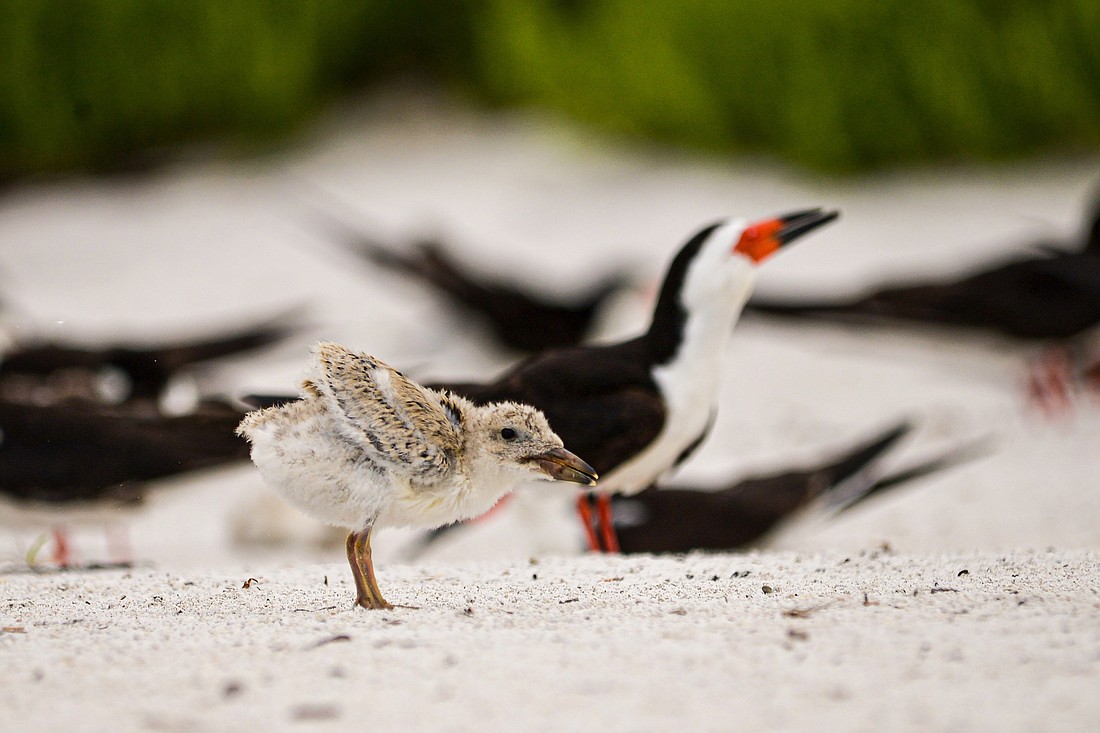- January 31, 2026
-
-
Loading

Loading

With their red and black bill, which is longer on the bottom and used to skim water for fish (hence their name), highly contrasting black and white bodies and loud yapping bark, black skimmers are far from inconspicuous. And with 830 adult birds, 276 nests and over 200 chicks (ranging from a few days old to 8 weeks), this year's black skimmer colony on Lido Beach is both hard to miss, and a fascinating sight to behold.
Black skimmers have been nesting on Lido Beach since 2014. Our colony is now one of the largest and most successful in Florida, with nesting taking place yearly from May until early September.
Like all shore-nesting birds, black skimmers nest directly in the sand. Their nests are therefore extremely vulnerable to disturbances by humans, as well as human-subsidized predators, such as dogs, gulls and crows, who are on the beach in larger numbers because of us. Black skimmers are a state designated threatened species, mainly because of habitat reduction due to coastal development. Therefore, both state and local agencies are actively involved in helping to keep them safe.
And you can help too! When visiting the beach, please keep an eye out for flightless chicks resting in the sand. On hot days, you'll notice that many birds flock by the water to cool down. By giving them space and not forcing them to move or fly, you are helping them conserve the energy they need to feed and protect their young.
And by not feeding crows and gulls on the beach, you help discourage the presence of species that actively imperil our shore-nesting birds.